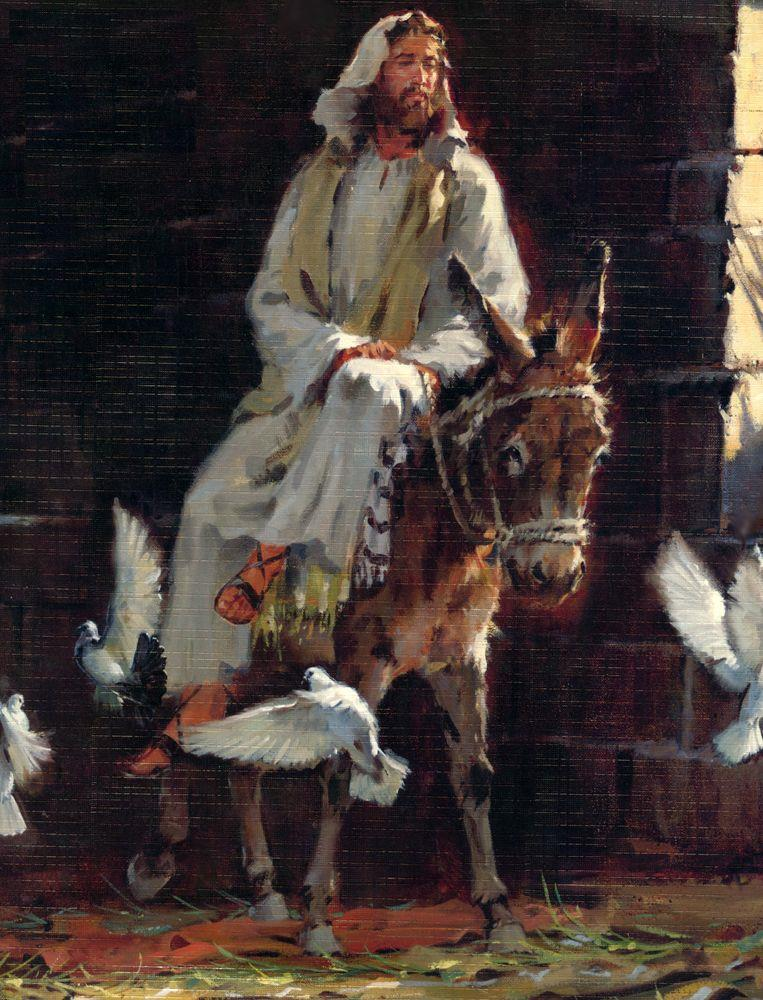Luke 18‒19
Salvation comes to Zacchaeus.
Luke 19
1 And He entered and passed through Jericho.
2 And, behold, there was a man called by the name Zacchaeus; and he was the chief
publican, and he was rich.
3 And he was seeking to see Jesus, who He is, and he could not for the crowd, because
he was little of stature.
4 And he ran ahead and went up into a sycamore3 to see Him, for He was about to pass
that way.
5 And when Jesus came upon the place, looking up He saw him, and said to him,
Zacchaeus, make haste, step down, for today I must stay at thy house.
6 And making haste, he stepped down, and received Him rejoicing.
7 And seeing, they all murmured, saying that He had come in to repose with a man who
was a sinner.
8 And Zacchaeus stood and said to the Lord, Behold, Lord, the half of my belongings I
give to the poor, and if I have taken anything from anyone by extortion, I give it back to
him fourfold.
9 And Jesus said to him, Today salvation has come to pass for this house, because he
also is a son of Abraham.
10 For the Son of Man has come to seek and to save that which was lost.
AC 10227. The rich shall not give more, and the poor shall not give less, from the half of the shekel, to give an uplifting to Jehovah. That this signifies that all, of whatever ability they may be, must ascribe all things of truth from good to the Lord, is evident from the signification of “one who is rich,” as being one who abounds in truths and goods and their knowledges... and from the signification of “one who is poor,” as being one who does not abound in these things....
[2] The case is this. All have the capacity to understand and to be wise; but the reason one person is wiser than another is that they do not in like manner ascribe to the Lord all things of intelligence and wisdom, which are all things of truth and good. They who ascribe all to the Lord are wiser than the rest, because all things of truth and good, which constitute wisdom, flow in from heaven, that is, from the Lord there. The ascription of all things to the Lord opens the interiors of man toward heaven, for thus it is acknowledged that nothing of truth and good is from himself; and in proportion as this is acknowledged, the love of self departs, and with the love of self the thick darkness from falsities and evils. In the same proportion also the man comes into innocence, and into love and faith to the Lord, from which comes conjunction with the Divine, influx thence, and enlightenment. From all this it is evident whence it is that one is more wise and another less; and also why the rich should not give more and the poor less—namely, that all alike have the capacity of being wise; not indeed an equal capacity of being wise, but they are alike in having the capacity to be so, because both the one and the other can be wise.
[3] The ability to be wise should not be taken to mean an ability to use knowledge to engage in reasoning about truths and forms of good, and so an ability to prove anything you like. Rather, it is an ability to observe what is true and good, to choose what is appropriate, and to apply this to functions performed in life. They who ascribe all things to the Lord do thus discern, choose, and apply; while those who do not ascribe to the Lord, but to themselves, know merely how to reason about truths and goods; nor do they see anything except what is from others; and this not from reason, but from the activity of the memory....
3 The Greek name for a type of fig tree
Questions and Comments
- We may compare Zacchaeus with the ruler whose story is told on the first day's reading for this week, since both of them were rich. One big difference is that the ruler had not yet acknowledged the Lord as God, but Zacchaeus appears to do so, since he confesses his sins and how he makes amends.
- What is an example of a situation in which we might murmur wrongly against the acceptance of a sinner?
- How important is making amends in the process of repentance? Consider the words, “First be reconciled with thy brother....” (Matt. 5:24)
- Why does the Lord say that salvation has come to Zacchaeus’ house today, if Zacchaeus has already been practicing repentance from his sins? What is new?
- What are some barriers to ascribing all truth and good to the Lord and not to ourselves?
| previous |  |
next |
|---|


